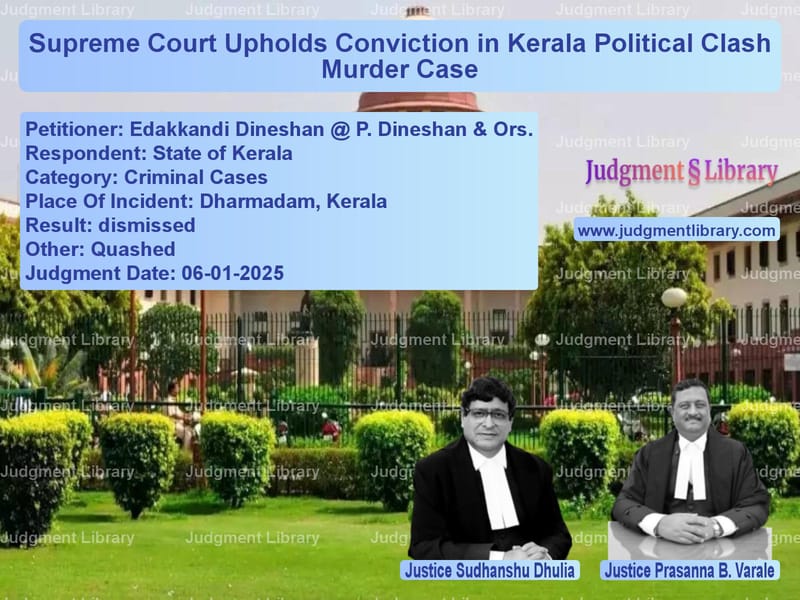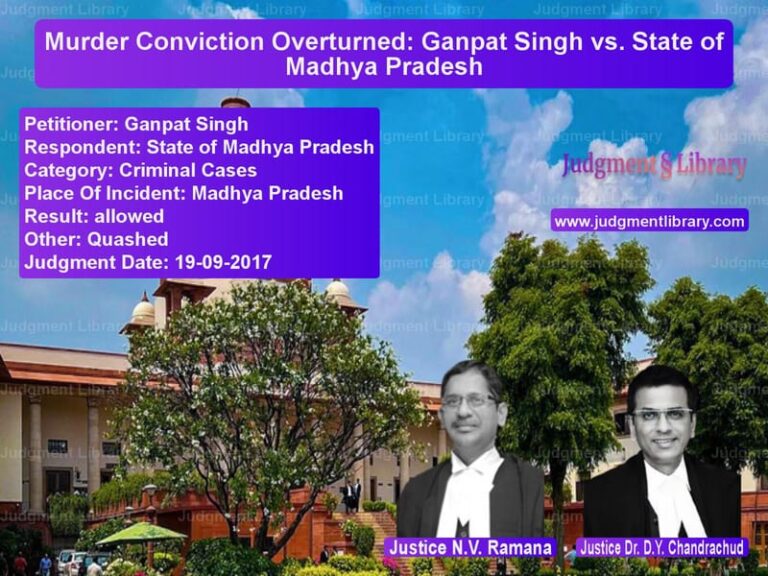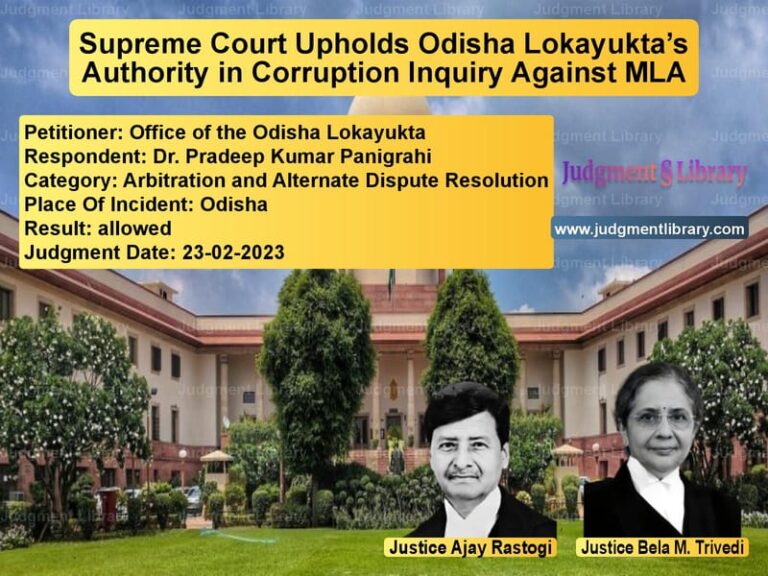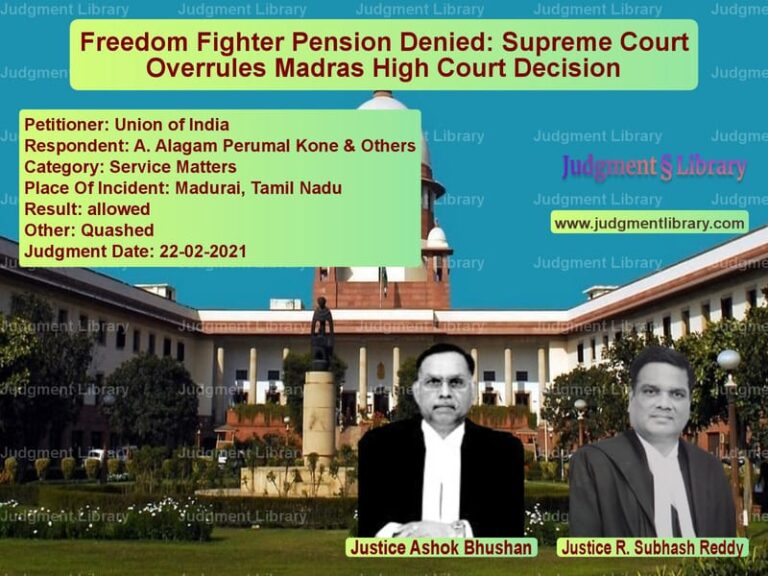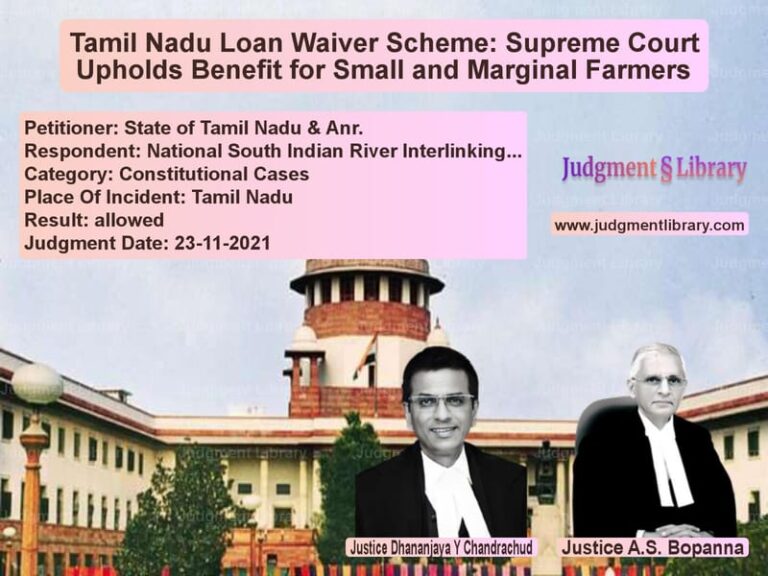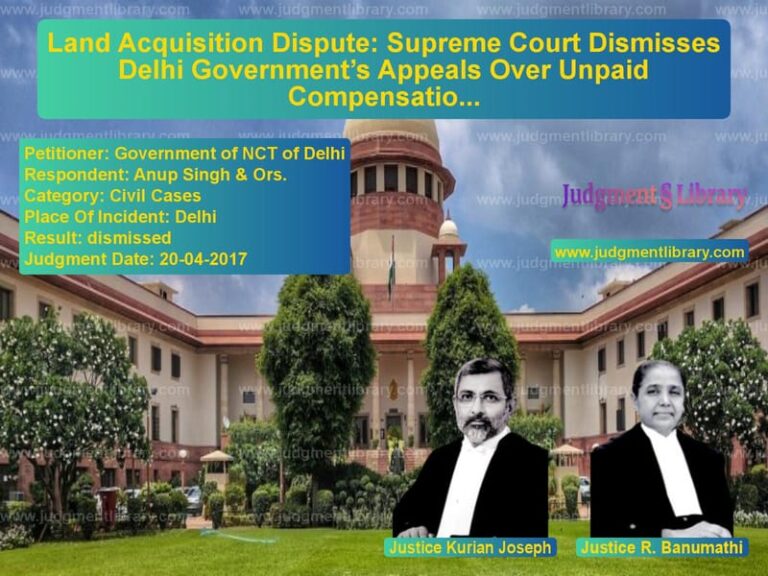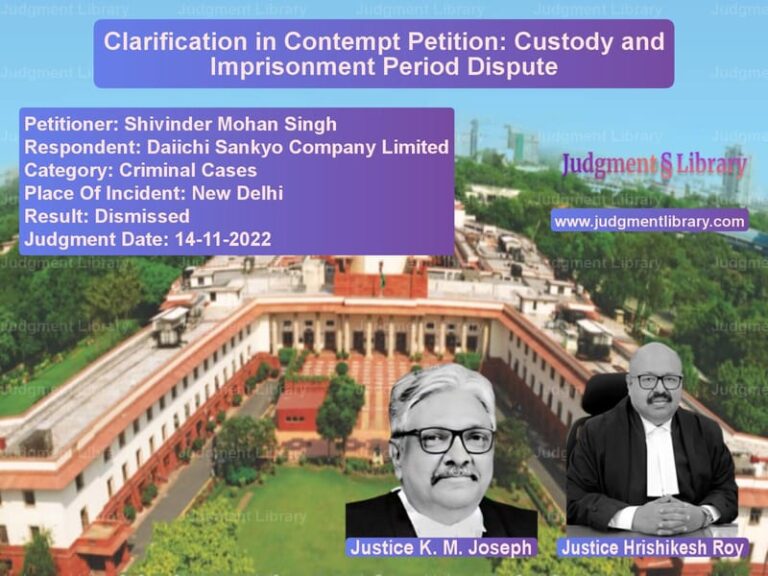Supreme Court Upholds Conviction in Kerala Political Clash Murder Case
The Supreme Court of India has upheld the conviction of the accused in the Edakkandi Dineshan @ P. Dineshan & Ors. v. State of Kerala, a case involving the murder of two individuals during political clashes between the Rashtriya Swayamsevak Sangh (RSS)/Vishva Hindu Parishad (VHP) and the Communist Party of India (Marxist) (CPI(M)). The Court dismissed the appeal challenging the Kerala High Court’s decision and reaffirmed the sentencing of the accused under Sections 143, 147, 506(ii), and 302 read with 149 of IPC, along with Section 5 of the Explosive Substances Act, 1908.
Background of the Case
On March 1, 2002, a statewide hartal was called by RSS/VHP, leading to violent clashes between its members and CPI(M) activists. Eleven individuals, fearing a mob attack from CPI(M) members, hid near a shed by the Meloor River. Around midnight, a group armed with deadly weapons, including axes, daggers, and choppers, attacked them.
Read also: https://judgmentlibrary.com/supreme-court-quashes-cheating-fir-in-goa-property-dispute-case/
While nine individuals managed to escape, two, Sunil and Sujeesh, were asleep and were fatally attacked by the mob. Their bodies were later discovered at different locations, and an FIR (No. 53/2002) was registered under multiple IPC sections and the Explosive Substances Act at Dharmadam Police Station.
Trial and High Court Decisions
- The Trial Court convicted all 15 accused under Sections 143, 147, 506(ii), and 302 read with 149 IPC. Additionally, A2, A3, A11, and A12 were convicted under Section 5 of the Explosive Substances Act.
- However, on appeal, the Kerala High Court, in its judgment on April 12, 2011, acquitted A4 to A10 and A13 to A15, citing lack of evidence.
- The conviction and sentencing of A1 to A3, A11, and A12 were upheld, leading to the present appeal in the Supreme Court.
Arguments by the Appellants
- The defense argued that the FIR was ante-timed and manipulated, as the police received knowledge of Sunil’s death only at 7:30 AM, but the FIR mentioned it at 3:00 AM.
- The appellants claimed that the body of Sunil was moved to implicate them falsely.
- They contended that the recovery of weapons, including an axe and chopper, was fabricated, and Section 27 of the Indian Evidence Act was misused.
- The defense pointed out that eyewitness testimonies were contradictory and unreliable, arguing that natural human behavior would not allow witnesses to remain at the crime scene during a violent attack.
Arguments by the Respondents (State of Kerala)
- The prosecution defended the FIR, stating that the police followed due procedure in registering the complaint and investigating the crime.
- They presented forensic and medical evidence, showing that the victims suffered fatal injuries consistent with the weapons recovered.
- The prosecution emphasized that eyewitness testimonies were consistent regarding the attack and identification of the accused.
- It was argued that political enmity was the motive for the attack and that the accused had a history of targeting RSS/VHP members.
Supreme Court’s Observations
- “There is no cogent or reliable evidence to show that the FIR was manipulated. The prosecution’s timeline of events stands validated by witness testimonies.”
- “The contention that Sunil’s body was moved to implicate the accused is unsupported by any material evidence.”
- “Eyewitness testimonies cannot be discarded simply because of minor contradictions. The prosecution witnesses’ statements were broadly consistent.”
- “The presence of the accused at the scene and their active participation in the attack are corroborated by multiple pieces of evidence, including the medical reports.”
- “Section 149 IPC establishes common intention among the accused, making all liable for the crime, even if individual roles varied.”
Final Judgment
- The Supreme Court dismissed the appeal, upholding the Kerala High Court’s conviction of A1 to A3, A11, and A12.
- The sentence under Sections 143, 147, 506(ii), and 302 read with 149 IPC was maintained.
- The conviction of A3 under Section 5 of the Explosive Substances Act was also upheld.
- The Court reiterated the importance of fair investigation but emphasized that minor lapses in police procedure do not invalidate strong evidence against the accused.
Conclusion
The Supreme Court’s ruling reinforces the principle that political violence leading to murder must be dealt with firmly. The judgment highlights the importance of credible witness testimonies, forensic evidence, and the role of common intention under Section 149 IPC in holding all participants accountable for a group attack.
Petitioner Name: Edakkandi Dineshan @ P. Dineshan & Ors..Respondent Name: State of Kerala.Judgment By: Justice Sudhanshu Dhulia, Justice Prasanna B. Varale.Place Of Incident: Dharmadam, Kerala.Judgment Date: 06-01-2025.
Don’t miss out on the full details! Download the complete judgment in PDF format below and gain valuable insights instantly!
Download Judgment: edakkandi-dineshan-@-vs-state-of-kerala-supreme-court-of-india-judgment-dated-06-01-2025.pdf
Directly Download Judgment: Directly download this Judgment
See all petitions in Murder Cases
See all petitions in Terrorist Activities
See all petitions in Judgment by Sudhanshu Dhulia
See all petitions in Judgment by Prasanna Bhalachandra Varale
See all petitions in dismissed
See all petitions in Quashed
See all petitions in supreme court of India judgments January 2025
See all petitions in 2025 judgments
See all posts in Criminal Cases Category
See all allowed petitions in Criminal Cases Category
See all Dismissed petitions in Criminal Cases Category
See all partially allowed petitions in Criminal Cases Category

